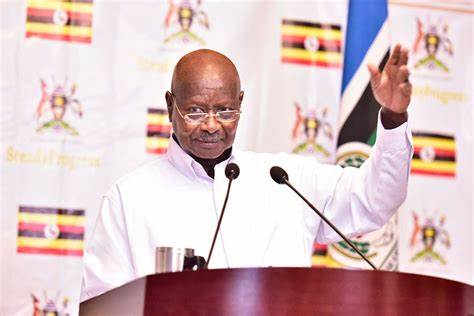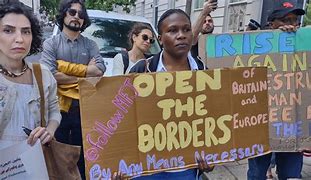
Reading AFRICAW’s undated article “Major Problems Facing Uganda Today” and the comments that follow the article, I cannot fail to conclude that when you listen only to the leaders or rulers of the country for the past 38 years, you may falsely conclude that the country has been on the right path that long.
It is often said that the tears of an [old] man come from far. However, mine have been flowing from very near as if I have had a lake in my tear glands overflowing with them. Each night they wet my pillow when I lie on bed expecting plenty of sleep.
Before I tell you what else, apart from the major problems stated in the above-mentioned article and the comments that follow it, has persistently, continually, consistently made me mourn for Uganda since 1991, when I came back to the country, le t me summarise what I get from that article. Many of them are actually scattered in my numerous writings on Uganda. So in a way what I am doing here is to list those AFRICAW has been able to mention, then I will add on what else appears in my writings.
AFRICAW has mentioned the following, among others:
- More than 1.5 million people living with HIV/Aids, with 21,000 HIV/Aids related deaths in 2019
- Malaria, Hepatitis A and E, Typhoid Fever, African Sleeping Sickness, Schistosomiasis, rabies still ravage lives, killing many Ugandans
- Pollution
- Absolute poverty
- Potential and actual political instability
- Rampant corruption
- Poor governance
- From Comments that follow the article, the following arise:
- Over-bloated Executive
- Over-bloated Legislature
- Numerous political appointees
- Numerous resident district commissioners and resident city commissioners
- Numerous presidential advisors
- Numerous private presidential secretaries and deputies
- Pearl of Africa as a sleeping giant that is over-governed and largely ungoverned. Overbantustanised country with 50,000 councils, 7431 parishes, 1403 sub-counties, 167 counties, 22 municipalities, 144 districts
- Administrative drainage of a weak economy
- Collapsed and/or collapsing agricultural sector now responsible for proliferating poverty, unemployment, poverty-related diseases, hunger and dishonesty
- Lack of transparency and accountability
- Homosexuality and related Western Aid withdrawal threats
- Everyone is an enemy of the other
- Diminishing literacy among even the educated
- Diminishing role of qualifications and professionalism in presidential appointments
- Yoweri Museveni is number one problem facing Uganda
- Growing selfishness and greed among leaders and rulers
- Unclear/ineffective education system
- Identity crisis
To those problems we may add presidential appointments of NRM cadres to the Bench of Judges and to the Electoral Commission ahead of the 2026 Presidential and General and Parliamentary Elections.
President Tibuhaburwa Museveni long ago wrote in his book, What is Africa’s Problem, “that the problem of Africa is leaders who overstay in power. This was an admission by the then new president of Uganda that behind every problem is the problem of leadership.
However, history has proved him insincere because he has gone on to overstay in power for 38 years, thereby presiding over the problems listed above. Given his recent decision to reappoint Justice Byamukama to the chairmanship of the Independent Electoral Commission, said to have been central to the electoral frauds of 2021, and many NTM cadres to the commission, the president seems to be determined to continue staying in power.
This indicates that the belief by some Ugandans that elections can remove the president from power is false. Indeed, during his presidential campaign in 1996, the president said a mere piece of paper cannot remove him from power. He added, “I am like a quarter pin of a bicycle, which comes in by hitting and goes out by hitting!”
According to Andrew Mwenda in his article of April 24 2022 in his The Independent, “The Real Problem of Uganda”, the real problem is educated Ugandans.
Mwenda writes, “Many educated Ugandans spend a lot of time complaining that the policy environment is hostile to business. There are many examples to prove this. Yet many less educated Ugandans and immigrants from Ethiopia, Eritrea, Somalia, India and China come to this country with little or nothing and build large fortunes. How come this bad policy environment does not stop their prosperity? The lesson is simple but powerful: we do not need a perfect policy environment to become prosperous”.
In my view, reducing a country’s problem to one problem, like the president did in his book What is Africa’s Problem, or Andrew Mwenda did in his article The Real Problem of Uganda is too simplistic and somewhat intellectually dishonest and misleading. That is why I prefer the AFRICAW article “Major Problems Facing Uganda Today” and the comments that follow, which reflect holistic thinking, to the individualistic views of President Tibuhaburwa Museveni and The Independent’s Andrew Mwenda.
I mourn Uganda because the country has a plethora of problems. Some are ancient; some are colonial; and some postcolonial, many of National Resistance Movement (NRM) origin and deliberately maintained and sustained by the NRM for political reasons.
From my numerous published works, let me recount the problems and issues that make me mourn Uganda in my dwindling days on Earth in physical form. Hopefully academics will develop academic interests in these problems and issues:
- Politico-corporate crime
- Declining role of intellectual capital in development, transformation and progress
- Diminishing separation of powers between Executive, Legislature and Judiciary
- Use of money bonanzas as a strategy in combating poverty
- Political ethnicisation of Uganda
- Deintellectualizing universities in favour of academicism and scholasticism
- Environmental destruction in favour of sugarcane growing and factories
- Climate change
- Refugee malaise
- Refugee Economy
- Politics of pure science
- Export of youths in modern slavery in the Middle East
- Curse of palm tree farming
- Foreignization of Agriculture
- Indianisation and Chinisation of Uganda
- Political uses of religion in Uganda
- Governance of science and technology
- Lack of creativity and Innovation
- Rising secondary illiteracy
- Ethnic politicization of Uganda
- Politics, religion and polarisation in Uganda
- The status of homosexuality in Uganda
- Military security or holistic security?
- The Status of Environmental Security in Uganda
- Abuse of Environmental Impact Assessment for Political ends
- Overborrowing Syndrome of Uganda government
- Disintegration of Knowledge into small knowledges
- Coffin Industry and environmental decay and collapse
- Falsehood that dams can solve our problems
- Unreadiness for Uganda beyond Museveni
- Environmentally-unconscious funerals
- The scourge of land-grabbing by people of exogenous
- Politicisation of everything conceivable in Uganda
- Apartheid-like Education in Uganda
- The monetary corruption of politics
- Presidentialism in Uganda
- The scourge of environmental illiteracy in Uganda
- Ethnicity or tribalism in Uganda?
- The status of internet in Uganda
- Ethically and morally empty governance
- Incessant failure of Uganda government projects
- Reintegrating knowledge and truth
- Governance by deception
- Political Inheritance in Uganda
- How NRM functionaries undermine environmental security
- The conspiracy of scientists and politicians in Uganda
- Why the Uganda executive is Ineffective
- Why the Uganda legislature is Ineffective
- Why the Uganda judiciary is ineffective
- Modernity as a tool of exclusion in Uganda
- The crisis of political underdevelopment in Uganda
- The crisis of political illiteracy in Uganda
- Exclusion of Ugandans from Natural resources
- Exclusion of Ugandans from meaningful political participation
- Violence and legitimacy in Uganda
- Centrality refugees and former refugees in environmental destruction in Uganda
- Need to free Uganda from intellectual confusion and social uncertainty
- Why Intellectual capital does not matter anymore in Uganda
- Why human rights do not matter anymore in Uganda
- Need for knowledge integration
- Need for science for survival in the 21st Century and beyond
- Need to put critical thinking at centre of development
- The absence of future-ready professionals in Uganda
- Need for sustainability education in Uganda
- Failed state, failed leadership in/of Uganda
- The case for broader minds in Uganda
- Need to rethink higher education in Uganda.
- How should Uganda locate herself in the Global Village?
- Uganda in the Congo Tragedy
- Rethinking centralism in Uganda
- The military in public affairs in Uganda.
- Declining power and influence of Intellectuals in Uganda
- Uganda: what really went wrong
- Academicising environmental conservation in Uganda
- How to de-NRA-nise Uganda
- Liberalising without liberalising in Uganda
- State capture in Uganda
- Deep state in Uganda
- Why can our universities be centres of creativity and innovation?
This is only a partial list of the problems and issues I covered in my writeups. Many of these issues and problems are researchable.
However, most of them would never find approval for research in most of our numerous universities because there is self-censorship to avoid topics considered to be politically-sensitive. This reflects the deep-seated conspiracy of silence, which now seems to be universally institutionalized.
Most topics proposed and researched in our university in the last 38 years of NRM rule have been enslaving rather than liberating. This explains why most of our graduates cannot engage in critical thinking and reasoning, let alone sustain an intelligible debate on anything.
You find such graduates in every sphere of life and economy. One school of thought suggests that this explains why President Tibuhaburwa Museveni has emerged as the supreme thinker, thereby building debilitating presidentialism in Uganda.
It is easier to have many of our most educated working in oppressive institutions of than think and reason critically to free our institutions of higher learning and society from politics and political domination.
Yes, I mourn for Uganda!
For God and My Country.
- A Tell report / By Prof Oweyegha-Afunaduula, a former professor in the Department of Environmental Sciences of the Makerere University, Uganda











